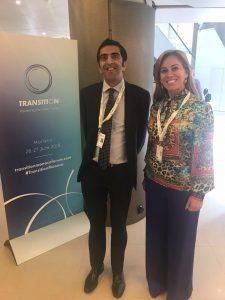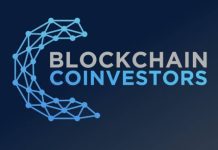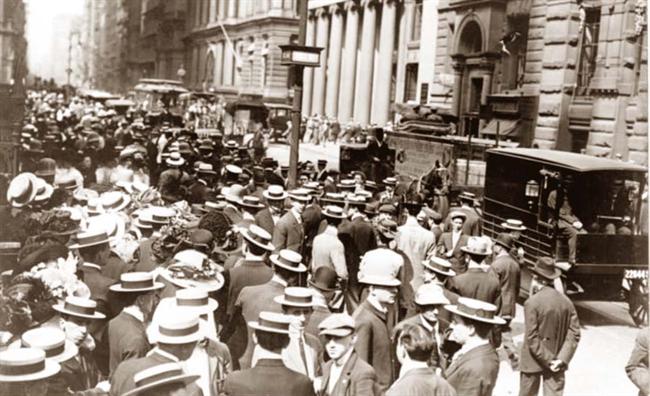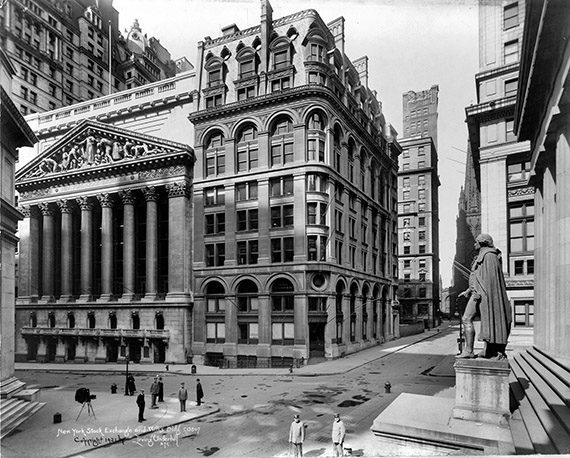
Hedgethink has had the chance to interview Hirander Misra, chairman and CEO of GMEX Group and other innovative projects such as MINDEX and FinComEco. In this two-part interview, we are going to navigate through Hirander Misra’s story, his vision of the world, specially highlighting those aspects regarding crypto and blockchain and how Hirander has applied that into his professional projects, including those trying to make a real impact in millions of people’s life.
In the first part, we focused on his personal career and the opportunities and challenges that new disruptive technologies such as crypto and blockchain are facing. And how they are impacting the world right now.
In this second one, we are going to try to disclose those projects that Hirander Misra is currently involved with, including GMEX Group, a suite of innovative solutions for the creation & operation of electronic exchanges and post trade infrastructure in securities, FX, derivatives, commodities, crypto & digital tokenised assets; MINDEX, the Mauritius based International Derivatives and Commodities Exchange, which is a full ecosystem for gold and other assets enabled by blockchain technology; and FinComEco, a pan-African agricultural exchange ecosystem.
Likewise, we have asked Hirander to share some of his insights about the upcoming future of blockchain, crypto and its impact on the financial industry of tomorrow, with some interesting points at the end.
About GMEX Group, MINDEX and FinComEco
Question: What are exactly the innovative solutions for the creation & operation of electronic exchanges and post trade infrastructure in securities, FX, derivatives, commodities, crypto & digital tokenised assets that GMEX Group highlights?
Answer: GMX group by way of its GMEX Fusion product suite delivers state-of-the-art, digitally enabled hybrid multi-asset trading and post trade solutions for exchanges, clearing-houses and central securities depositories (CSDs) taking advantage of the inherent positive characteristics of both centralised and distributed ledger technology.
GMEX Group is well positioned in this area as it was recently deemed a top UK blockchain company in a recently published report by the UK Parliament APPG on Blockchain, together with the Big Innovation Centre, DAG Global and Deep Knowledge Ventures, which outlines the current state of blockchain investment in the UK as well as the considerable ecosystem that has emerged (with 225 blockchain companies across sectors).
Institutional investors are increasingly investing in digital assets and require custodians who are able to deliver exchange custody, self-custody or third-party management of their digital asset accounts. The new cryptocurrency and digital asset exchanges are looking to expand liquidity and attract new participants and require custodian partners who are able to scale technology to meet the needs of the institutional market. Additionally, traditional custodians and CSDs need to extend their capabilities to provide custody of digital assets and to bring infrastructure and processes up-to-date and to introduce distributed ledger functionality integrated with existing technology and processes. GMEX Fusion, combining the established GMEX centralised technology with the latest Blockchain technology, is well placed to support either.
Q: Could you tell us more about the project MINDEX?
A: MINDEX is a full ecosystem domiciled in Mauritius with links to various African ethical gold producing countries, which will provide a regulated exchange, clearing house, refinery, office and digital tokenised gold enabled by:
- Trading and clearing technology
- Electronic Warehouse Receipts trading, traceability and tracking System (WRS)
- Immutable tracing of Gold and other assets
- Tamper-Proof records through client and asset blockchain registry
In light of the surge associated with digital assets, MINDEX has also incorporated MINDEX Digital Custodian Limited and MINDEX Marketplace Limited to focus on digital assets harnessing blockchain.
Having been in financial services for 24 years I can honestly say that the level of change and positive disruptive potential is more now than it has ever been
Q: After GMEX and MINDEX, FinComEco describes itself as a fully integrated Financial & Commodities Ecosystem providing services to help improve the livelihoods of Sub Saharan African farmers using blockchain. Could you explain more detailed how the service work? And how do you expect it to improve the quality of life of farmers?
A: The aim of FinComEco is to match exchange trading capability, including derivatives, to physical growers. Also to add value through enabling manufacturing, support services and delivery contributing to additional local employment. The initiative allows smallholder farmers to thrive, enabled by best of breed technology, standards and inputs (including seeds, fertilisers and pesticides). This is coupled with a unique Agri-finance business model to solve credit and financing issues underpinned by improvements in logistics and warehousing.
FinComEco has already successfully proven this concept in Malawi at the Agricultural Commodity Exchange for Africa (ACE) through the GMEX Group. During 2016 substantial benefits were delivered to smallholder farmers with an average 31% increase in income from reducing intermediaries, the use of warehouse receipts and better price transparency with 47,000 registered to receive the latest market prices on their mobile phones. This is now being expanded out to multiple African jurisdictions.
Present and future, blockchain and crypto reshaping the financial industry
Q: Do you think nations and societies are prepared to exponential growth of disruption technologies and the advent of the fourth industrial revolution?

A: Having been in financial services for 24 years I can honestly say that the level of change and positive disruptive potential is more now than it has ever been. There is the availability of new technology to enable this from Blockchain, to Big Data, IoT, Cloud Computing, Artificial Intelligence, biometric technologies/ cybersecurity solutions and Quantum computing, with a convergence between them. This has and will continue to facilitate new opportunities at an accelerated pace across sectors. As it stands, most nations and societies are not prepared, but some see the vision and are starting to prepare with good work done at government level that translates into policy and regulation, which in turn spurs practical adoption. Jurisdictions that are worth mentioning are Bahrain, Bermuda, Estonia, Gibraltar, Malaysia, Malta, Mauritius, Singapore and UAE to name but a few.
A minority subset of society realises the impact that this could have on the way that we live yet others are ambivalent and that is not a concern to me as early adopters will drive change for the masses much like during the internet era. You do not have to learn to build a car to drive one and benefit from it for example. The vision of a totally smart city with smart infrastructure is not too far away. Current smart city projects to a large degree are semi-smart but will become smarter as technology evolves so that the futuristic science fiction movie becomes a reality.
Q: How do you think countries and societies are ready for disruptive technologies such as digital money and blockchain?
A: Society is already comfortable with electronic payments by card and phone and is increasingly becoming cashless, which will only increase as smartphone usage continues to increase globally. As such digital money as a concept is understandable to many. Blockchain to the masses is still somewhat of a question mark and there is still a general view by many of “it does not matter to me as it has no bearing on my day to day life.” It is seen as some technological development that is far removed. That said, we use technology every day and yet are rarely concerned about the back end as long as it works and does what we need it to. With blockchain if we can make the process more efficient and the plumbing work, then users will adopt it because it enhances what they can do and how they can do it, Going back to the analogy of the car I used earlier, I can enjoy driving a car yet I am rarely concerned by or look at the engine.
Q: How will it affect financial services worldwide?
A: Blockchain is increasingly seen as a path towards delivering a new industrial revolution – dubbed the 4th Industrial Revolution – by providing a means of trusted communication and exchange that can be publicly verified. The logic behind blockchain is one that is likely to be “as revolutionary as the Internet”.
Blockchain is a way of initiating and verifying transactions in a distributed environment. The decentralised record keeping and reporting functionalities promise opportunities in reducing cost, fraud and increasing speed of transactions. With initiatives such as R3CEV and IBM IBP 2.0/ Hyperledger 2.0, leading banks and market infrastructure providers are battling their way for developing blockchain applications, thereby enabling a change in the traditional financial systems.
There is no doubt that blockchain will have a transformational impact on the financial services industry. A recent survey of executives and experts by the World Economic Forum predicted that 10% of Global GDP would be stored on blockchain technology by 2027. This based on 2018 amounts to around $USD8.5 trillion.
Q: What do you see are the main driving innovation forces today?
A: A major factor for innovation in this space is the emergence of permission-less platforms enabled by public blockchain e.g. bitcoin. However, global bankers are looking for more agile, cheaper and faster distributed consensus mechanisms enabled with requisite permissions. This has led to the emergence of a new type of blockchain namely the Distributed Ledger Technology (DLT). Some of the areas where the use of DLT has been practised are trading of shares of private companies, solution for streamlining the process for loan syndication (digital assets holding) and more.
Payments and financial inclusion have gained major market attention, while there is a strong case of investing in lending and security biometrics space of Fintech. Attention is also beginning to be placed on robo-advice and bank-in-a-box as new investment avenues. Blockchain is an emerging technology and has a potential for mass market implementation in future.
Globally, financial institutions are collaborating with Fintech firms and setting up their own in-house labs for testing blockchain technology
Blockchain is increasingly seen as a path towards delivering a new industrial revolution – dubbed the 4th Industrial Revolution
Q: What sectors are more likely to be disrupted and changed, let’s say, within 5 years?
A: Whilst in most the focus has been on Fintech with some exceptions, we are going to see increasing adoption across other verticals from Islamic finance, pharmaceuticals/ medtech, manufacturing/ robotics, shipping, foodtech, propertytech, agritech/ supply chain, e-commerce/ retail, tourism, digital media/ marketing and gaming. The challenge will be how government driven policy aligned with the private sector ensures a consistent and cohesive approach across such verticals. The likes of Monaco and Malaysia certainly see as an opportunity.
Q: Innovation, leadership and being at the end of technology are crucial to success in today’s world. What advice would you give to professionals, startup entrepreneurs trying to break into theses competitive / disruptive markets across the world?
A: Entrepreneurs rather than take a build it and they will come approach, should really think about real-world problems which need solving and how new technologies can facilitate this and at the same time give them a revenue stream. There is no point applying new technology to a use case where there is not an inherent problem for the sake of doing so. The business case and its potential to realise a return is important for commercially driven projects as that is what will ultimately drive the valuation and just solely the expectation value. There are too many loss making enterprises in this space, which are overvalued and many during the crypto downturn have been exposed. This has served to weed out the rubbish and the industry will be much better for it as a genuinely productive innovation mindset can be applied going forward. Of course a startup has a road to positive cash flows and in the early stages as well as ongoing, investment in R&D is crucial.
Technology evolves fast and it is important to keep pace, however this cannot just be done standalone and organisations can succeed to a greater extent through partnerships and collaboration.
In my mind this is the one plus one equals 11 and not 2 making sure we do more with less.
On behalf of the editorial team of hedgethink, we would like to thank Hirander Misra for his time and for sharing his expertise and insights with us.
Check out here the first part of the interview

Hernaldo Turrillo is a writer and author specialised in innovation, AI, DLT, SMEs, trading, investing and new trends in technology and business. He has been working for ztudium group since 2017. He is the editor of openbusinesscouncil.org, tradersdna.com, hedgethink.com, and writes regularly for intelligenthq.com, socialmediacouncil.eu. Hernaldo was born in Spain and finally settled in London, United Kingdom, after a few years of personal growth. Hernaldo finished his Journalism bachelor degree in the University of Seville, Spain, and began working as reporter in the newspaper, Europa Sur, writing about Politics and Society. He also worked as community manager and marketing advisor in Los Barrios, Spain. Innovation, technology, politics and economy are his main interests, with special focus on new trends and ethical projects. He enjoys finding himself getting lost in words, explaining what he understands from the world and helping others. Besides a journalist he is also a thinker and proactive in digital transformation strategies. Knowledge and ideas have no limits.










































